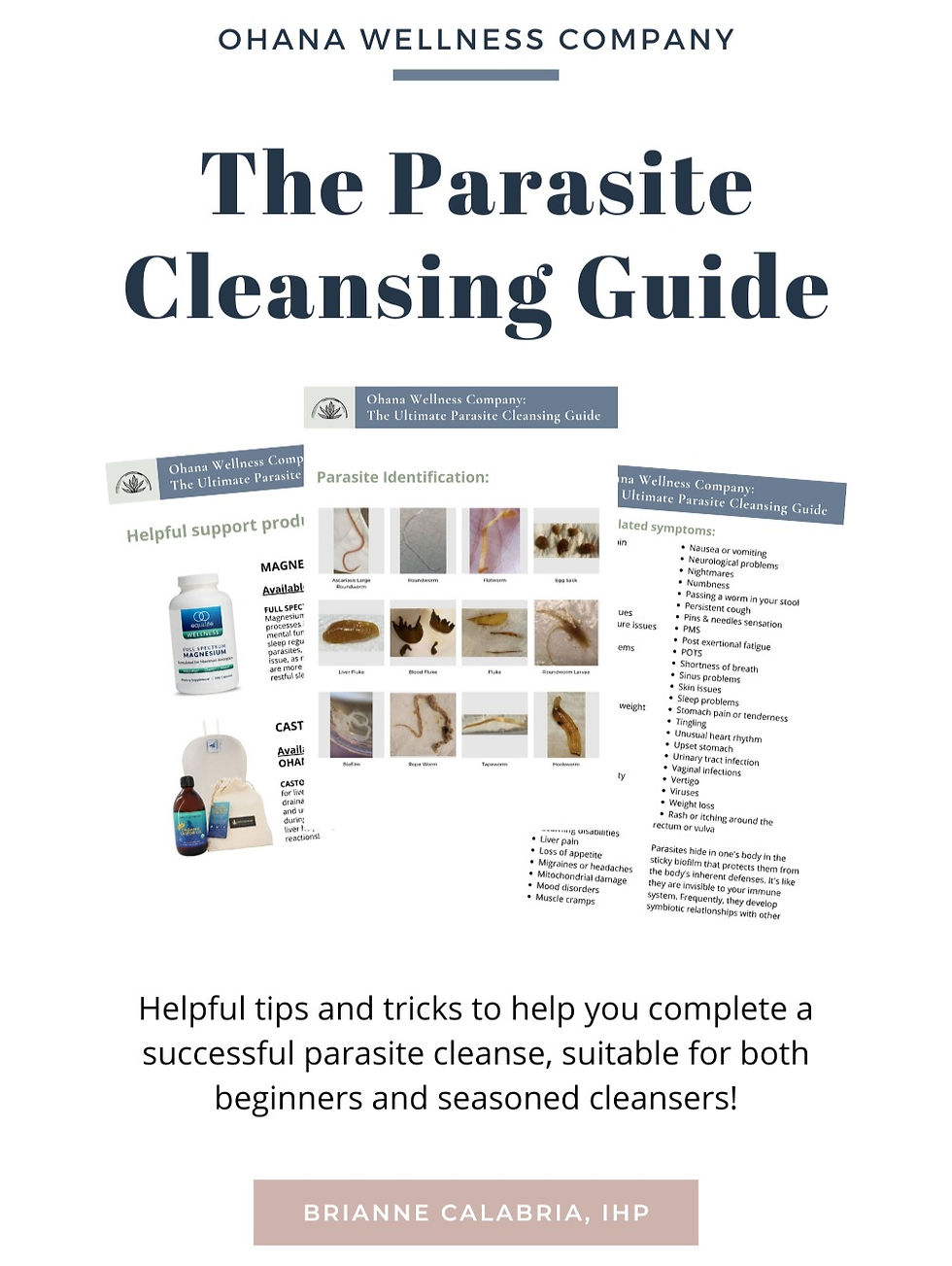Stress and Digestion- What You Should Know
- Brianne Calabria
- Jan 21, 2020
- 3 min read
Sometimes we can get stuck in the vicious cycle of being stressed, increasing cortisol and increasing inflammation... which in turn causes more stress. So, how do we break the cycle?
It's important to know that stress can affect the body in many ways, but digestion is one that often goes overlooked. Stress can come from many things, whether endogenous (from within) or exogenous (an outside source). Stress can be emotional (lifestyle, relationships, etc.), it can come from a wrecked gut and digestive system, or it can stem from pathogens in the body (viruses, toxins, etc).
Stress causes an increase in cortisol, which is good in the short term for dealing with a threat. But long term, it can become seriously detrimental to our health. Something called the "cortisol steal" is when cortisol robs the body of other VERY important hormones.

The "cortisol steal" robs your body of needed nutrients for healing, good quality sleep and metabolism to help your body function optimally.
Excess cortisol lowers thyroid stimulating hormone (TSH) production and can even inhibit the conversion of the inactive form of thyroid hormone (T4) to the active form (T3). Even worse, it can even reverse any active T3 in the body to rT3, an unusable form. Alas.. hypothyroidism (Hashimotos).
High cortisol can lower FSH and LH, reducing the production of estrogen, testosterone and progesterone. This can disrupt the entire menstrual cycle, causing irregular periods or hypothalamic amenorrhea (cessation of a cycle).
Cortisol also blocks progesterone receptors, creating a progesterone deficiency. This in turn, causes estrogen dominance (in both females and males).
While cortisol is high in times of stress, after an extended period of chronic stress, it can plummet very low, causing an entirely new set of symptoms.
Cortisol and Digestion
When your body is in a state of constant "fight or flight" because of high cortisol levels, you are using all of your energy towards that (running or fighting). Your body chemistry can not discern whether that stress is because of a bear running after you, or because of a fight you had with your significant other. It will react the same way, on a chemical level, every time. Now, say you are running away from that bear... would your body really need to worry about digesting a meal? Probably not. During the stress response, cortisol aids in moving blood flow towards the brain, large muscles, and limbs (so you can run), rather than towards the digestive tract. Therefore, our body is not concerned with digestion, and actually suppresses it.
So what happens when we eat when we're stressed? Less stomach acid produced (acid reflux, excess pathogens aren't killed off) and less digestive enzymes released (bloating, cramping, food isn't digested properly, constipation, diarrhea, low nutrient absorption).
What happens when you don't digest the food you eat? It sits in the stomach and ferments (gas, belching) and actually becomes a lovely food for those nasty bacteria in the gut...furthering any gut dysbiosis (bacterial imbalance) that you may have, and in turn increasing the gut wall permeability.
What happens when you have increased gut wall permeability? Leaky gut syndrome... allowing the indigestibles, toxins, pathogens, etc. to leak directly into the blood stream. This causes white blood cells to attack them (cue MORE inflammation). What happens to the ones who get away? They settle in the body.. whether its in adipose tissue (fat) causing it to swell (bloating), or in the organs (thyroid, lungs, etc.) or the joints (arthritis). This causes even more white blood cells to now attack your organs and joints (AUTOIMMUNE!).
So you can see, eating while under stress (of any kind) is not ideal. If you're someone who deals with chronic stress, inflammation or sickness, this process is only further exasperated.
Ways to Lower Cortisol
Some easy ways to keep cortisol down, especially if you find yourself wired all the time:
Balance your blood sugar to help soothe and support the adrenal glands and break the vicious cycle of cortisol production
Eat nutrient dense foods and focus on key minerals like magnesium, potassium and sodium
Prioritize sleep, at least 8 hours per night, every night
Regulate your nervous system through breath work, meditation, nature, or stimulating the vagus nerve with singing, humming, gargling or cold exposure
While these can be a great start to lowering your cortisol levels, it's EXTREMELY important to treat the root cause of your stress! Functional medicine labs are highly suggested to find the source of your troubles, and working with a health practitioner will help yo1u incorporate more intricate tactics to break the cortisol negative feedback loop.
Remember, find your ROOT CAUSE. Always ask WHY, and if someone tells you the "why" isn't important, then it's time to find someone else to talk to!!
With love,
Brie





Comments